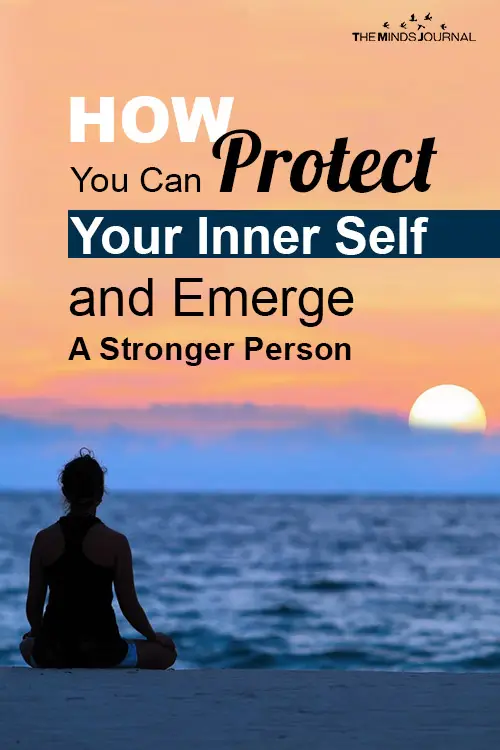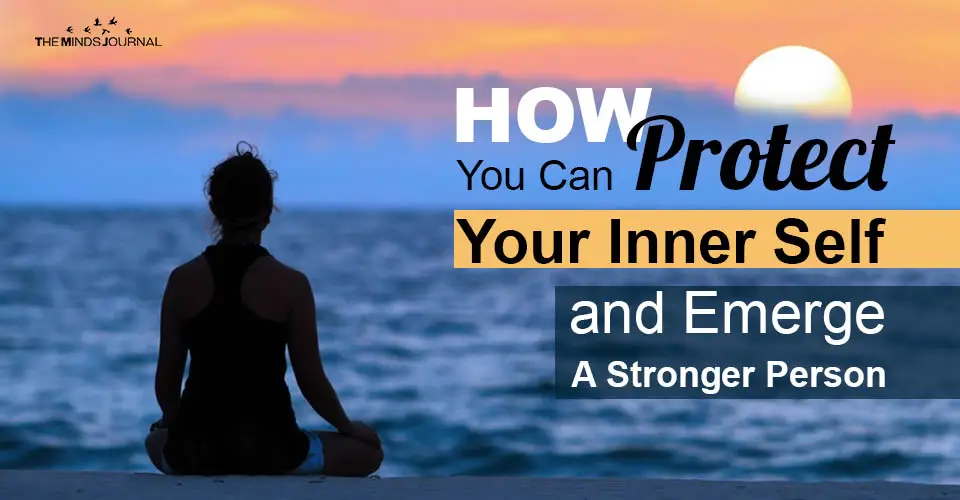Have you ever thought about protecting your inner self, so that you can be a stronger person, and also that your mental health is in a good place?
We all are living in the 21st century, where protecting our inner self has become our own responsibility.
Earlier we ignored our inner self and peace, but now we have learned to love ourselves. This change we are seeing is the result of awareness of people towards protecting their inner self, for the sake of their mental and emotional and other peace that we are going to read further in the article.
In order to protect your inner self, we should make some promises to ourselves.
The promises to self are:-
- I can do my best under the circumstances.
- My healing work is unique to me alone. I promise to commit to my own process of recovery.
- I promise to be honest with myself.
- I will commit to speaking to myself in a kinder manner.
- I will exercise patience, with myself, as I walk towards healing.
- I will listen to myself, honoring my strength and limitations.
- I will engage in healing work with an open mind.
- I will give myself another chance. I will forgive myself when my efforts fail me. My strength is found in trying again.
- I promise to heal my own peace, ability, and readiness.
Now talking about safety:-
Which type of safety do you think you need to secure, the most, right now?
Which do you need to improve?
Which do you think is most secure in your life, right now?
In order to begin to process of healing from trauma, one of the first things that we must do is secure is our level of safety. This means that the potential of threat and danger, to yourself or others, is relatively non-existent.
You cannot begin, nor be successful in trauma work, whilst under actual threat and danger.
There are four types of Safety to be discussed and they are physical safety, mental safety, emotional safety, and spiritual safety.
Want to know more about protecting your inner self? Read The Best Way To Cultivate Contentment And Inner Peace In Yourself
The four types are self-explanatory. It is important to note that the maintenance and protection of all four types may, or will become disrupted post-trauma. These systems may fail due to emotional numbing. As my trauma series continues, it will become even more clear as to why safety, and how we protect our safety, is paramount during trauma work.
Here Are the 4 Types Of Safety
Spiritual Safety
Trusting your faith in God, a Higher Consciousness, or Supreme/Supernatural Being. Trusting the protection of such Forces for both yourself and others.
Emotional Safety
Acknowledgment of personal feelings and responding appropriately.
Mental Safety
Honoring your thought, belief and awareness systems
Physical Safety
Ensuring our bodies are safe from danger. Protecting ourselves, or removing ourselves, from sources of threat and danger.
Safety of self
How safe are you with yourself?
Our Autonomic Nervous System (ANS), which forms part of our Central Nervous System, is responsible for detecting, registering, and responding to both threats and danger. The ANS controls, and regulates, many of our internal organs without conscious awareness or manipulation from us.
The ANS is further subdivided into the Parasympathetic Nervous System (Inhibitor) and the Sympathetic Nervous System (Stress Responder), both responsible for your regulating Stress Responses (increasing productivity decreasing heart rate; blood flow; constricts/ relaxes airways; stimulates or inhibits digestion; constricts/ dilates pupils, etc.).
However, the ANS is unable to distinguish between internal threat versus external threat. This also links to our Vagus Nerve – this is an important Biological Structure, which I will be releasing content on in the days to follow.
In simple terms: we can cause hyper threat responses simply by our thoughts and Self-Talk. Our ANS responds to internal threats and danger, in the same way, that it responds to external threats and danger.
We can create an internal sense of ’emergency’, triggering mass stress response, and neuro-chemical imbalance. Answering the questions, within the contents, will help you to assess the level of internal safety that you create.
The questions are:-
- How do you feel as a result of your Thoughts and Self-Talk?
- Are you self-destructive?
- Do your thoughts scare you?
- Do your thoughts intimidate you?
- Do your thoughts threaten you?
- Do you undermine yourself?
- How do you treat yourself?
- How do you speak to yourself?
- Take care of your inner self and protect yourself and your loved ones..
If you want to know more about how you can protect your inner self, then check this video out below:









Leave a Reply
You must be logged in to post a comment.